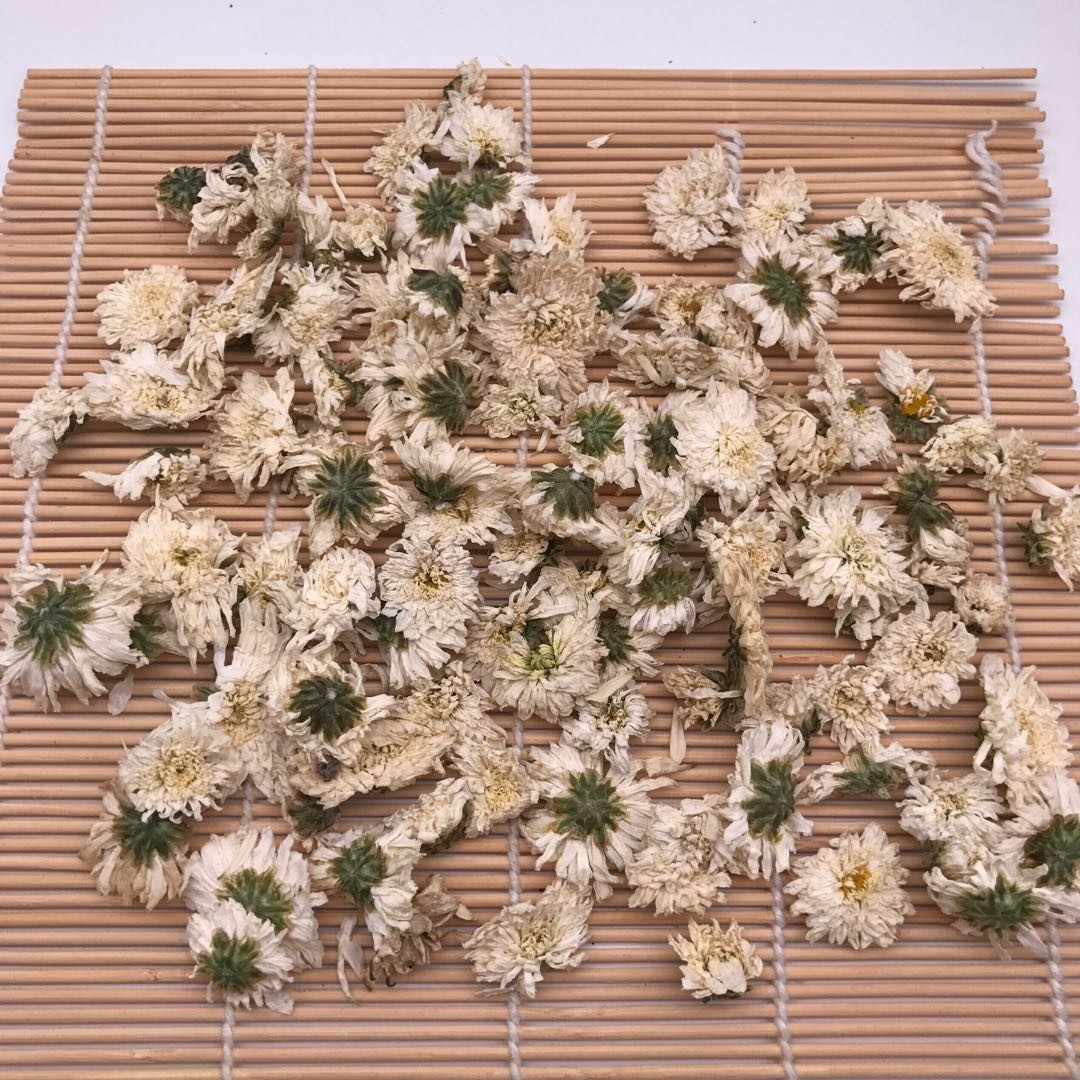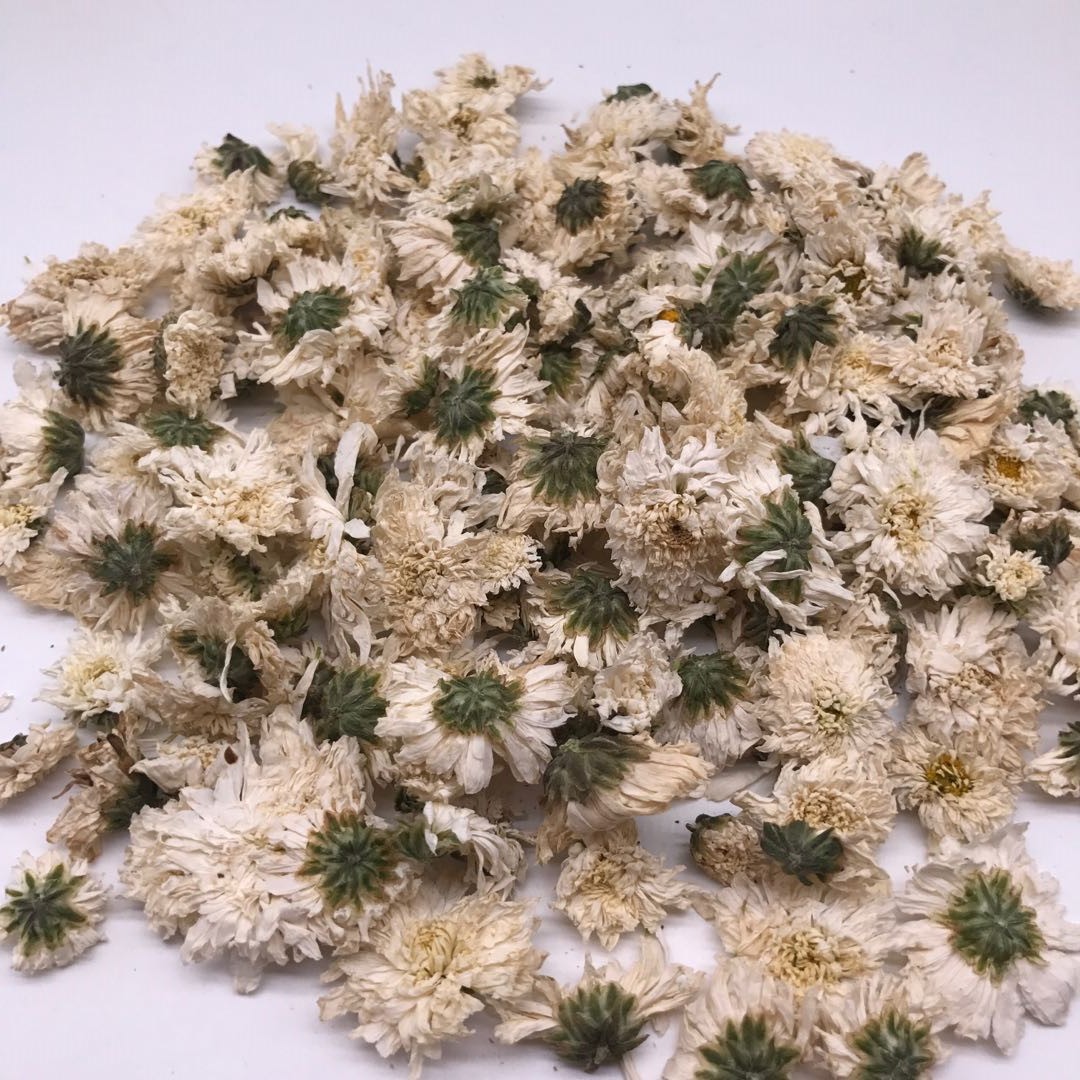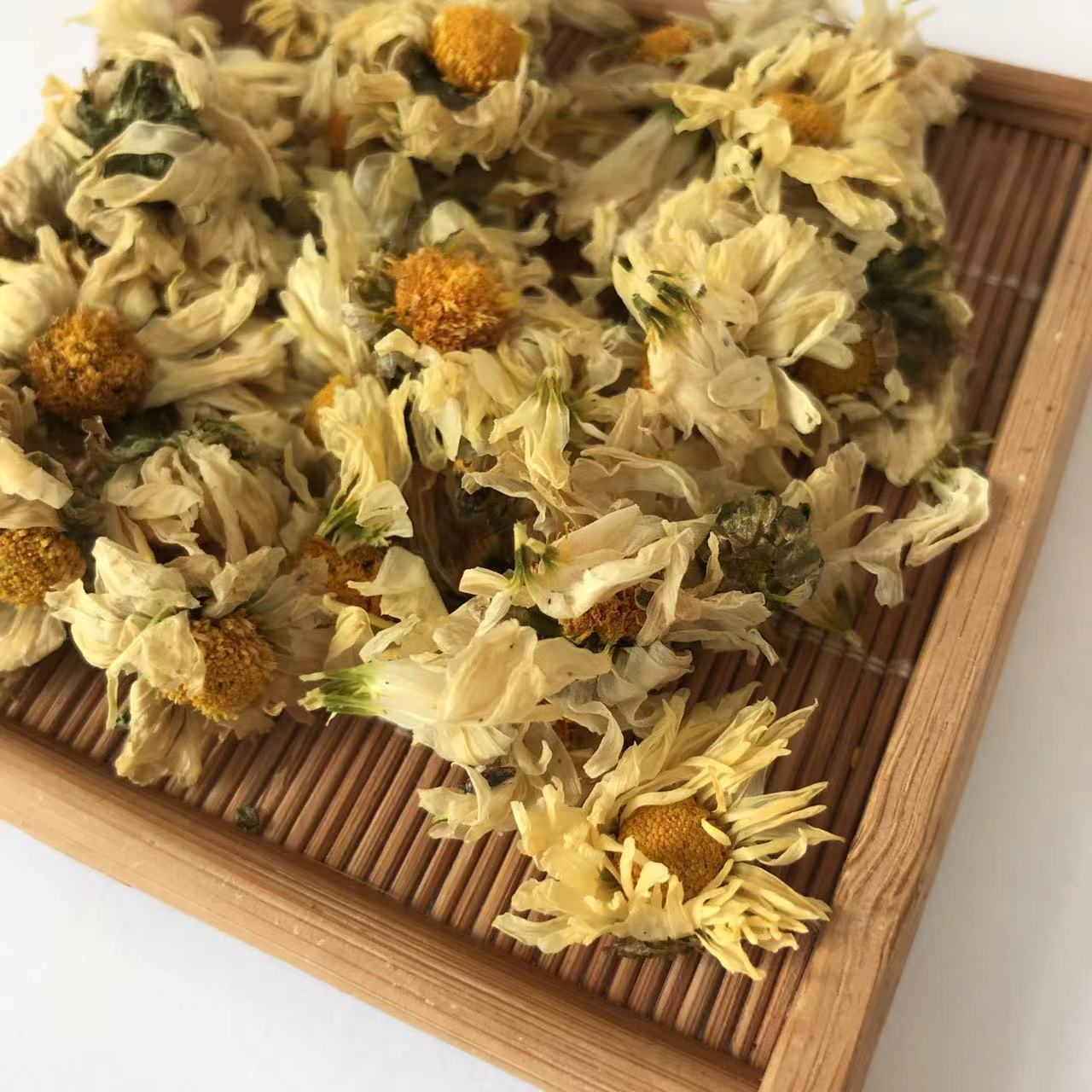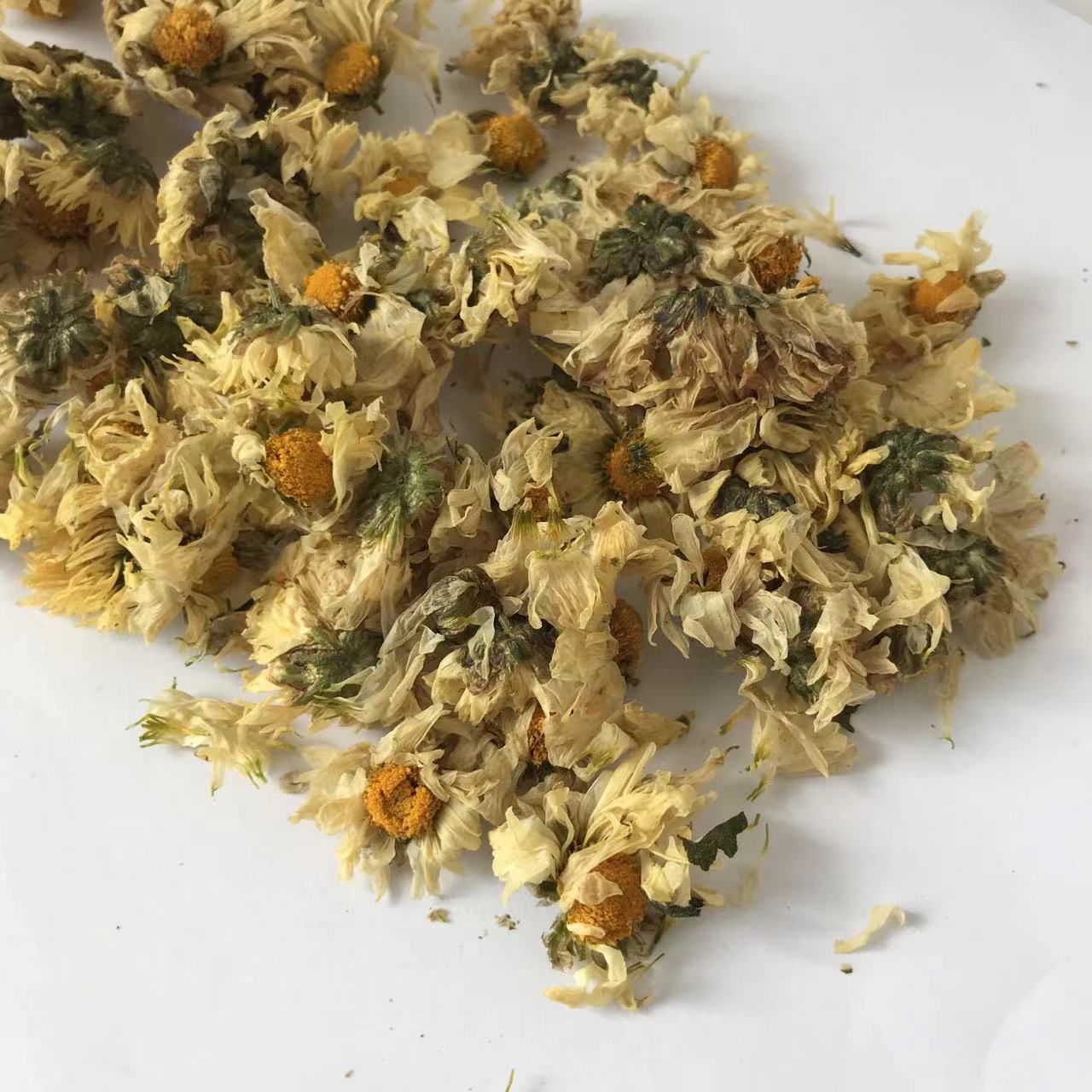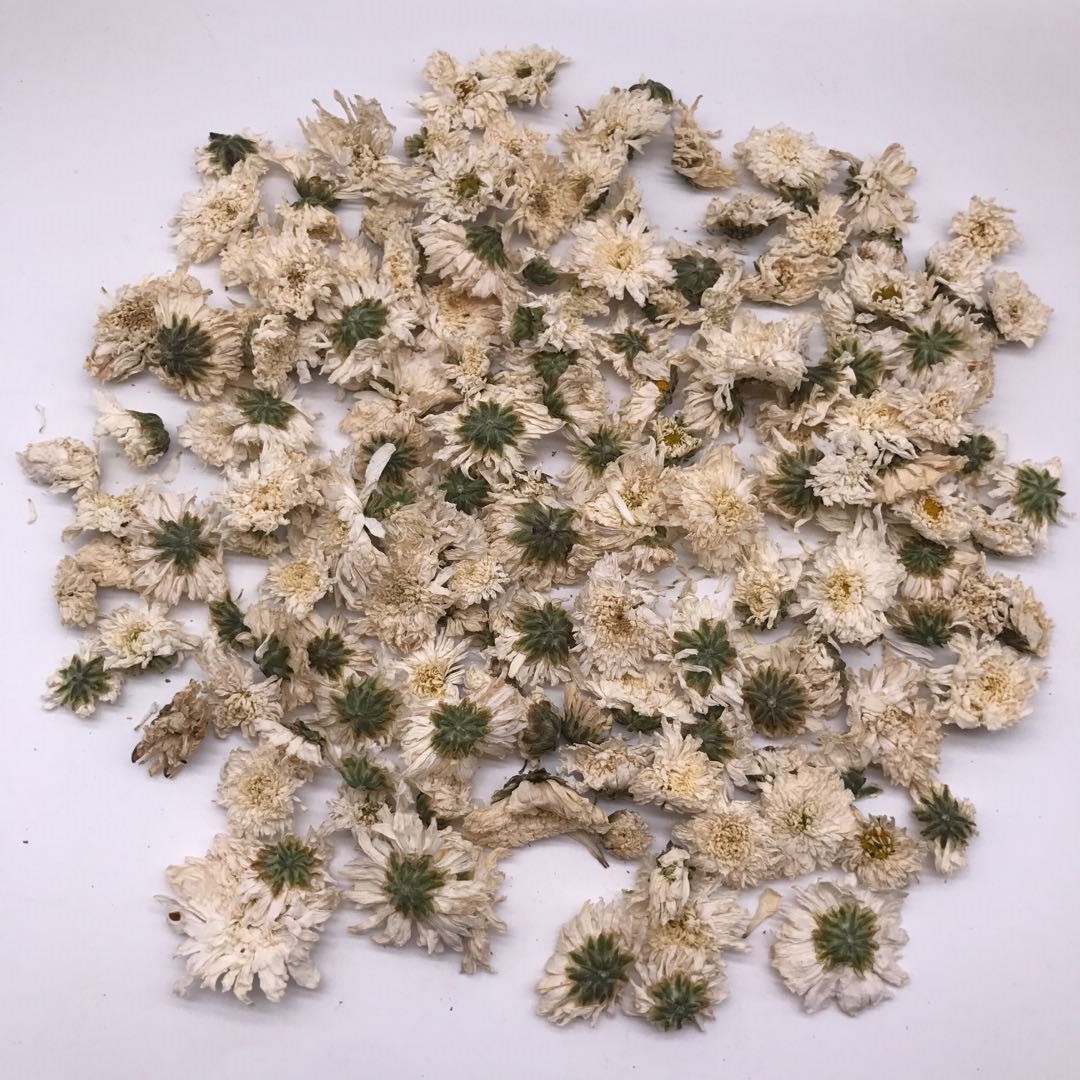
Chrysanthemums, often celebrated for their vibrant blooms, also hold significant value as both an edible and medicinal plant. In many Asian cultures, particularly in China, chrysanthemum flowers are prized for their health benefits and are commonly used in culinary and medicinal preparations.
Edible Uses:Chrysanthemum flowers have a mild, slightly sweet flavor and are often used to add color and a subtle floral note to dishes. They can be found dried or fresh and are commonly used in the following ways:
Chrysanthemum Tea: One of the most popular ways to enjoy chrysanthemums is by brewing them into tea. This light, fragrant tea is believed to clear heat, calm the mind, and improve vision.
Chrysanthemum Soup: In Chinese cuisine, chrysanthemum petals are sometimes added to soups, especially those that are meant to have cooling properties, such as chicken or pork broth soups.
Confectionery: In some regions, chrysanthemum petals are crystallized and used to decorate cakes, pastries, or other desserts.
Chrysanthemum Wine: Chrysanthemum flowers can be infused in wine to create a floral-infused drink that is enjoyed during special occasions in autumn.
Medicinal Uses:The medicinal properties of chrysanthemums have been recognized in traditional Chinese medicine (TCM) for hundreds of years. They are believed to have cooling and detoxifying effects on the body. Some of the medicinal uses include:
Anti-inflammatory: Chrysanthemums contain compounds like luteolin and chlorogenic acid, which have anti-inflammatory properties that may help reduce inflammation in the body.
Headache and Eye Strain Relief: In TCM, chrysanthemum tea is often recommended for relieving symptoms of headaches and eye strain, as it is believed to cool the liver and improve vision.
Lowering Blood Pressure: Chrysanthemum tea may also aid in lowering blood pressure due to its natural flavonoids and other active ingredients.
Immune System Support: The antioxidant properties of chrysanthemums can help boost the immune system and protect against free radical damage.
Skin Care: Topically, chrysanthemum extracts are used in some cosmetics for their anti-aging and skin-soothing properties.
It's important to note that while chrysanthemums offer numerous health benefits, they should be consumed in moderation as part of a balanced diet. Pregnant women and individuals with allergies to chrysanthemums or other Asteraceae plants should avoid consuming them. As with any herbal remedy, it's advisable to consult a healthcare professional before using chrysanthemums for medicinal purposes.
